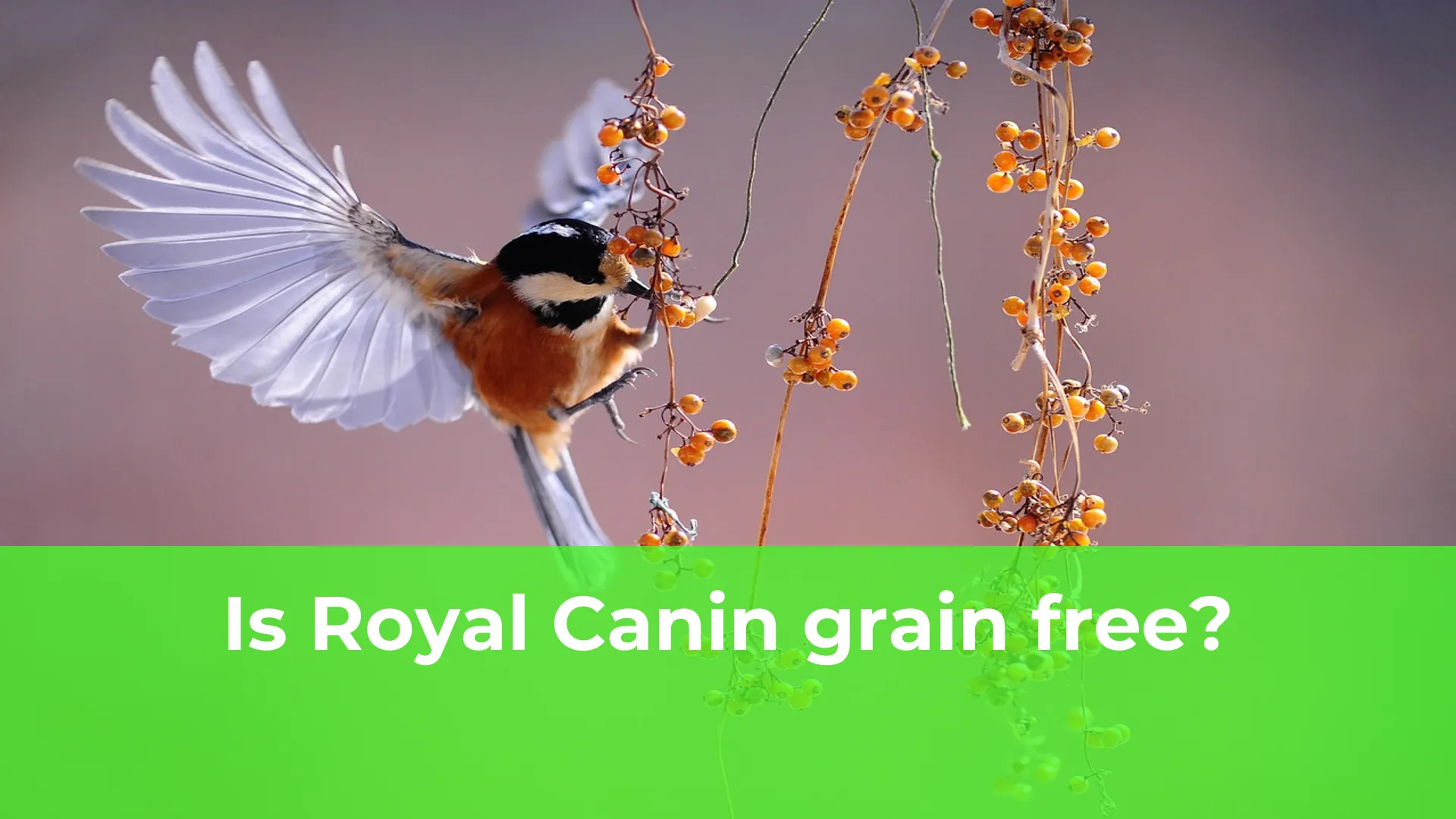Is Royal Canin grain free?
Many pet owners are increasingly concerned about the ingredients in their pet’s food, particularly when it comes to grains. One popular brand of pet food, Royal Canin, has gained a reputation for producing high-quality products that cater to specific dietary needs. But is Royal Canin grain free?
The answer to this question is both yes and no. While Royal Canin does offer a range of grain-free options for pets with specific dietary requirements, not all of their products fall into this category. Royal Canin recognizes that some pets may have sensitivities or allergies to grains, and they have developed grain-free formulas to cater to these needs. However, it’s important to note that Royal Canin also offers a wide variety of products that do contain grains, as grains can provide necessary nutrients and energy for many pets.
When choosing the right pet food for your furry friend, it’s essential to consider their specific dietary needs and any allergies or sensitivities they may have. Royal Canin grain-free options can be a suitable choice for pets with grain allergies, but it’s always recommended to consult with a veterinarian before making any significant changes to your pet’s diet. They can help you determine the best food options that meet your pet’s nutritional requirements and keep them healthy and happy.
1. The Growing Trend of Grain-Free Pet Food
As more and more pet owners become conscious of their furry friends’ dietary needs, the demand for grain-free pet food has skyrocketed. This growing trend is not only fueled by pet owners’ desire to provide healthier and more nutritious meals for their pets but also by a deeper understanding of the potential benefits of a grain-free diet. Grain-free pet food is specifically formulated to mimic the natural diet of dogs and cats, which primarily consists of meat and vegetables. By eliminating grains like wheat, corn, and soy, these high-quality pet foods aim to reduce digestive issues, alleviate allergies, and promote overall well-being for our beloved companions.
One of the main reasons behind the increasing popularity of grain-free pet food is the rise in pet food allergies and sensitivities. Many dogs and cats suffer from allergies to grains, which can manifest as itchy skin, ear infections, and gastrointestinal problems. By switching to grain-free alternatives, pet owners hope to alleviate these symptoms and provide their furry friends with a more comfortable and enjoyable life. Additionally, grain-free pet food often contains a higher protein content, which can support muscle development and contribute to a healthier weight for our pets. As a result, veterinarians are starting to recommend grain-free diets more frequently, recognizing the potential benefits they can offer to our four-legged companions.
2. Unveiling the Truth: Is Royal Canin Grain Free?
For pet owners, choosing the right food for their furry companions is of utmost importance. With an increasing concern about the quality of ingredients and potential allergies, many pet owners are turning towards grain-free options. In this article, we delve into the truth behind Royal Canin and its grain-free claims.
Royal Canin is a well-known brand in the pet food industry, offering a wide range of products tailored to meet the dietary needs of different pets. However, there has been some debate surrounding the grain-free status of their formulas. While Royal Canin does have a selection of grain-free options in their product line, it is essential to understand what this truly means and how it compares to other brands.
Grains, such as wheat, corn, and rice, are commonly used as fillers in pet food and can be a source of allergies for some animals. The grain-free trend emerged as a solution to address these concerns. Royal Canin’s grain-free formulas do not contain traditional grains but instead utilize alternative ingredients like peas, lentils, or sweet potatoes. However, it is important to note that not all of Royal Canin’s products are grain-free, and pet owners should carefully read the labels to ensure they are selecting the appropriate option for their pet’s needs.
3. Examining the Ingredients of Royal Canin Pet Food
When it comes to choosing the right pet food for our beloved furry friends, it’s important to prioritize their health and well-being. One brand that has gained significant popularity in recent years is Royal Canin. Known for their extensive range of pet food options, Royal Canin claims to provide tailored nutrition for various breeds and specific health concerns. In this article, we will delve deep into the ingredients used in Royal Canin pet food to examine whether they truly live up to their promises.
Understanding the ingredients in pet food is crucial as it directly impacts the overall nutritional value and quality of the product. Royal Canin prides itself on formulating their recipes with a scientific approach, using a combination of carefully selected ingredients. These ingredients are sourced from reputable suppliers and undergo strict quality checks to ensure they meet the brand’s high standards. By examining the ingredients used in Royal Canin pet food, we aim to provide pet owners with a comprehensive understanding of what goes into the bowl and whether it aligns with their pet’s dietary needs.
4. Understanding the Pros and Cons of Grain-Free Diets
Grain-free diets have gained immense popularity among pet owners in recent years. While these diets claim to offer numerous health benefits for pets, it is essential to understand their pros and cons before making a decision. On the one hand, grain-free diets can be beneficial for pets with food sensitivities or allergies to grains. They often contain alternative carbohydrates such as sweet potatoes or legumes, which can be easier to digest for some animals. Additionally, grain-free diets may help maintain stable blood sugar levels and prevent obesity in certain pets. However, it is important to note that not all pets require a grain-free diet. Grains can provide essential nutrients, including fiber and vitamins, which are crucial for maintaining a balanced diet. Moreover, some studies suggest a potential link between grain-free diets and an increased risk of heart disease in dogs, although further research is needed to establish a clear causation. Therefore, pet owners should consult with their veterinarian to determine if a grain-free diet is appropriate for their furry companions.
5. Debunking the Myths Surrounding Grain-Free Pet Food
Grain-free pet food has gained popularity in recent years as pet owners become more conscious about their furry friends’ dietary needs. However, there are many myths floating around about grain-free pet food that need to be debunked. In this article, we will separate fact from fiction and shed light on the truth behind grain-free pet food.
Myth #1: Grain-free pet food is only for pets with allergies. One common misconception is that grain-free pet food is necessary only for pets with grain allergies. While it is true that some pets may have sensitivities to grains, grain-free pet food can benefit all pets, regardless of allergies. By eliminating grains from their diet, pets can experience improved digestion, healthier skin and coat, and increased energy levels.
Myth #2: Grain-free pet food lacks essential nutrients. Another myth surrounding grain-free pet food is that it is nutritionally deficient. However, this couldn’t be further from the truth. Grain-free pet food is formulated to provide all the necessary nutrients for a balanced diet. High-quality grain-free pet foods often contain alternative carbohydrate sources like sweet potatoes or peas, which are rich in fiber and other essential nutrients.
6. Analyzing the Nutritional Benefits of Royal Canin Grain-Free Options
Royal Canin is a well-known brand in the pet food industry, offering a wide range of options for different dietary needs. One of their popular choices is the grain-free line of pet food, which has gained attention in recent years. In this article, we will take a closer look at the nutritional benefits of Royal Canin’s grain-free options and how they can contribute to your pet’s overall health and well-being.
Grains like wheat, corn, and soy are commonly used in pet food as fillers and binders. However, some pets may have sensitivities or allergies to these ingredients. Royal Canin’s grain-free options are specially formulated to provide a complete and balanced diet without the use of grains. Instead, they incorporate alternative sources of carbohydrates like sweet potatoes, peas, and lentils. These ingredients are easier to digest for pets and can help reduce the risk of gastrointestinal issues.
Furthermore, Royal Canin’s grain-free options are packed with high-quality animal proteins. This is crucial for pets as they require a sufficient amount of protein for healthy muscles, organs, and immune function. The brand ensures that their grain-free formulas contain a rich source of animal protein, such as chicken, lamb, or fish, as the main ingredient. Along with essential fatty acids and antioxidants, these formulas provide a complete and balanced nutrition profile to support your pet’s overall health and vitality.
7. Customer Reviews: Is Royal Canin Grain-Free Worth It?
With the increasing popularity of grain-free diets for pets, many pet owners are turning to Royal Canin Grain-Free as a potential option for their furry friends. But is it worth the hype? In this article, we delve into customer reviews to get a better understanding of whether Royal Canin Grain-Free lives up to its claims and provides the health benefits it promises for pets. From the quality of ingredients to the impact on digestion and overall wellbeing, we analyze the experiences of pet owners who have tried this brand to help you make an informed decision for your beloved pet.
8. How Grain-Free Pet Food Impacts Your Pet’s Health
Grain-free pet food has become increasingly popular in recent years, with many pet owners opting for this type of diet for their furry companions. However, what exactly is the impact of grain-free pet food on your pet’s health? The answer may surprise you. While grain-free diets can have benefits for certain pets, such as those with grain allergies or sensitivities, it’s important to understand the potential drawbacks as well. In this article, we will delve into the science behind grain-free pet food and explore how it can affect your pet’s overall well-being.
Frequently Asked Questions (FAQ)
Is Royal Canin grain-inclusive?
Yes, Royal Canin offers grain-inclusive options in their pet food line.
Why does Royal Canin have grains?
Royal Canin includes grains in their pet food because they provide essential nutrients, like carbohydrates and fiber, to support the overall health and digestion of cats and dogs.
Do vets recommend grain free?
Some vets recommend grain-free diets for certain pets, while others caution against them due to potential risks. It is best to consult with your veterinarian to determine what diet is best for your individual pet.
Is Royal Canin hydrolyzed dog food grain free?
No, Royal Canin hydrolyzed dog food is not grain free. It is specifically formulated for dogs with food sensitivities and allergies, and contains hydrolyzed proteins for easier digestion.




